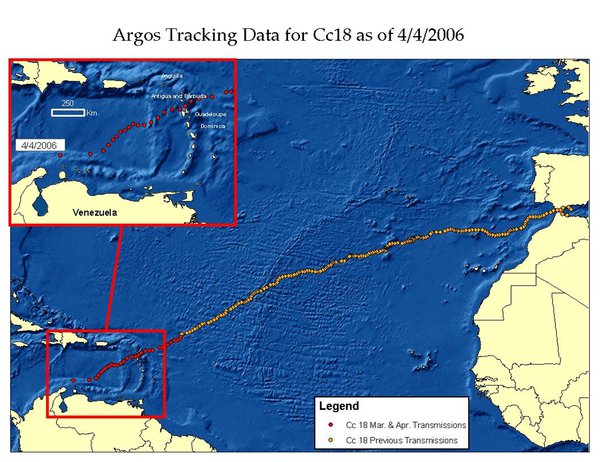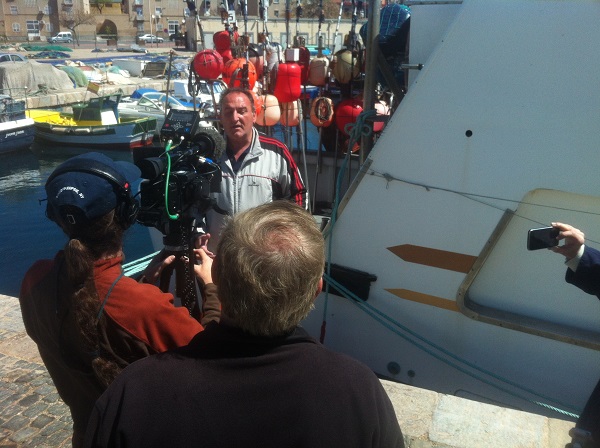The relevance of international cooperation
This track of a loggerhead from the Mediterranean to Nicaragua clearly highlights the need for concerted conservation and research efforts throughout the oceanic range of these animals. Loggerheads found around Spain are primarily from the NW Atlantic Distinct Population Segment (DPS - http://www.nmfs.noaa.gov/pr/pdfs/statusreviews/loggerheadturtle2009), but turtles from nesting beaches of the Eastern Mediterranean and the southern Atlantic can also be found transitting through these waters.
Research, conservation, public awareness, education and management actions are currently taking place throughout this oceanic range. By joining efforts at this international level we can be more efficient in our aim to recover endangered sea turtle populations.

Interdisciplinary cooperation
Research for sea turtle conservation is multidisciplinary. But sea turtle conservation is not just the “business” of scientists and conservationists. Fishermen, mariners, teachers, journalists, artists, the general public and policy makers are all essential to ensure management schemes are effective in maintaining or recovering a favorable conservation species of sea turtles and their ecosystems.
A good example of this can be found in Florida, where some of the most important sea turtle nesting beaches are now at the core of the community, involving an amazing variety of stakeholders, including research teams as that of the University of Central Florida, Sea Turtle Conservancy, In-water reasearch Group, Cape Canaveral National Seashoe Park, Florida Fish and Wildlife Commission, USFWS, NOAA NMFS, the Archie Carr National Wildlife Refuge, NASA Kenedy Space Center, St. Lucie Nuclear Power Plant, recovery centers, fishermen, educators, volunteers, the public, etc.
Education is a key element in marine biodiversity conservation. Art is often one of the most interesting ways of communicating the relevance of sea turtle conservation to society. Toti Ekilibis a good example of art used to raise awareness of fishermen on the island Martinique.
Another relevant form of education is through the mass media. In the OASIS programme we count on the support of Mission Blue (www.mission-blue.org), National Geographic and journalists and film makers as Fernando Lopez Mirones (orca-films.blogspot.com).





